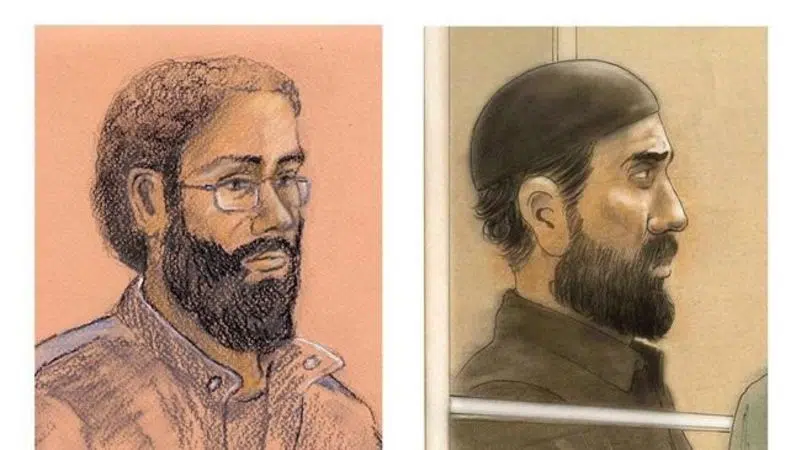
New trial ordered for men convicted of terror charges in plot to derail train
TORONTO — Two men found guilty of terrorism charges in connection with a plot to derail a passenger train between Canada and the U.S. were granted a new trial Tuesday after Ontario’s highest court found the jury that convicted them was improperly selected.
Raed Jaser and Chiheb Esseghaier were found guilty in 2015 on a total of eight terror-related charges between them. They were sentenced to life in prison with no chance of parole until 2023.
The two challenged their convictions, and lawyers for Jaser argued the trial judge mistakenly rejected their client’s request regarding the method of jury selection. The lawyer appointed to assist Esseghaier — who continues to be self-represented — agreed in written arguments that a new trial had to be ordered on that ground.
Ontario’s Court of Appeal said the trial judge had made an error in denying Jaser his preferred method of jury selection.


